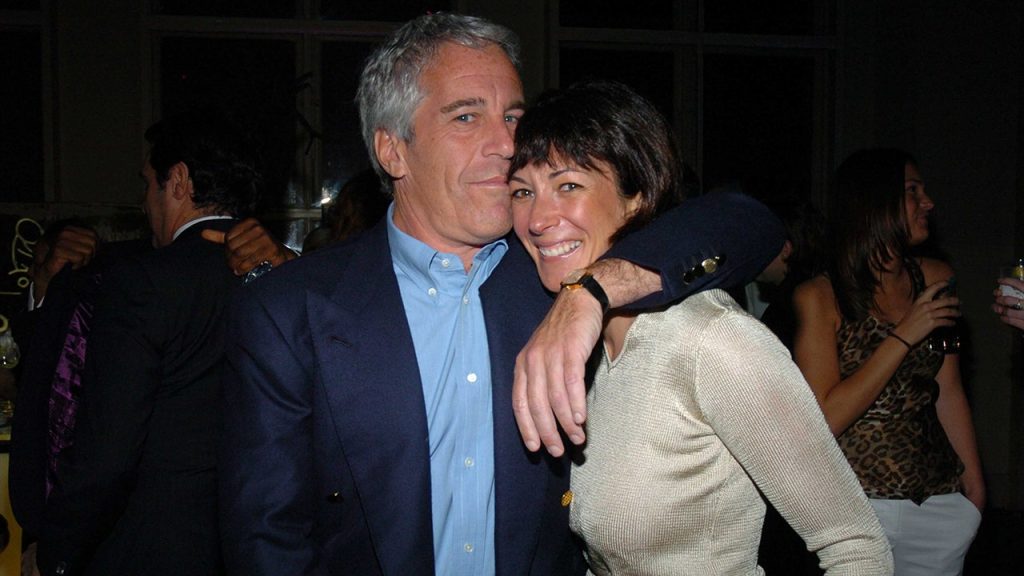House Oversight Committee Investigates Epstein Case: A Deeper Look at Accountability
In a recent move highlighting the ongoing scrutiny of the Jeffrey Epstein case, House Oversight Committee Chairman Rep. James Comer has formally requested Suspicious Activity Reports (SARs) related to both Jeffrey Epstein and his associate, Ghislaine Maxwell. This action, initiated through a letter to Treasury Secretary Scott Bessent on Sunday, represents another step in the committee’s broader investigation into how federal authorities handled the Epstein case. With a September 15 deadline for document production, Comer emphasized that these financial reports are “essential” to assist the committee’s oversight of sex trafficking law enforcement and specifically how authorities managed the investigation and prosecution of Epstein and Maxwell. This request comes as questions about Epstein’s death and the overall management of his case continue to linger in the public consciousness.
The committee’s efforts extend beyond just financial records. Earlier this year, Chairman Comer established the Task Force on the Declassification of Federal Secrets, which has already begun receiving Epstein-related records from the Department of Justice as of August 22. This multi-pronged approach suggests a comprehensive attempt to uncover potential gaps or failures in how the justice system handled the Epstein case from investigation through prosecution. The committee appears to be examining whether proper procedures were followed, particularly given the high-profile nature of the case and its controversial conclusion with Epstein’s death while in federal custody. The request for financial records specifically may help illuminate money flows that could reveal additional dimensions of Epstein’s operations and connections that may have been overlooked in previous investigations.
The scope of the committee’s investigation has expanded to include testimony from prominent former government officials. Deposition subpoenas have been issued to several high-ranking individuals, including former President Bill Clinton, former Secretary of State Hillary Clinton, former FBI Directors Robert Mueller and James Comey, and former Attorney General Loretta Lynch. This list of witnesses points to the committee’s interest in understanding whether Epstein’s connections to powerful figures may have influenced the handling of his case at various points throughout the years. The committee appears to be examining a period spanning multiple administrations and investigating whether political considerations affected law enforcement decisions regarding Epstein’s activities and prosecution. This broad approach suggests the committee is not limiting its investigation to any single agency or time period.
The committee’s planned questioning of Robert Mueller faced an unexpected setback when health issues prevented his appearance. Mueller had been scheduled to testify on Tuesday as part of the ongoing probe, making him potentially the second witness after former Attorney General Bill Barr’s appearance last month. According to sources familiar with the investigation, the committee intends to withdraw its subpoena due to Mueller’s health concerns. This development illustrates some of the practical challenges in conducting investigations involving former officials, particularly those of advanced age or with health considerations. Despite this setback, the committee appears determined to continue its investigation through other witnesses and document requests to build a comprehensive understanding of the Epstein case.
This congressional investigation occurs against the backdrop of continuing public interest in the Epstein case and ongoing questions about whether justice was properly served. Epstein’s 2019 death in federal custody, ruled a suicide, has fueled speculation and conspiracy theories about whether powerful individuals might have had reasons to silence him. Maxwell’s subsequent conviction on sex trafficking charges answered some questions about Epstein’s operations but left many others unanswered, particularly regarding the full extent of his network and all those who may have been involved or had knowledge of his activities. The committee’s focus on both Epstein and Maxwell suggests an attempt to develop a more complete picture of their activities and whether law enforcement agencies properly investigated all aspects of their alleged crimes.
The Treasury Department’s response to this request will be closely watched, as will future testimony from the high-profile witnesses subpoenaed by the committee. This investigation represents one of the most significant congressional examinations of the Epstein case since his death and may potentially reveal new information about how federal agencies managed the investigation and prosecution. Whatever the outcome, this investigation highlights the continuing importance of accountability in high-profile cases and the role of congressional oversight in examining potential failures in the justice system. For victims of Epstein and Maxwell, this renewed attention may represent another opportunity for answers about whether the full extent of their crimes was properly investigated and whether all responsible parties have been held accountable.


